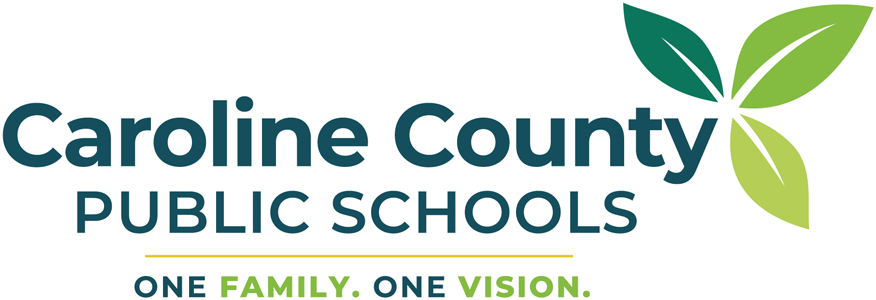
Graduation Readiness
GRADUATION REQUIREMENTS
Students must meet academic, attendance, and service learning requirements in order to graduate. This page provides a brief overview of graduation requirements, as well as other resources to help prepare students for post-graduation success.
Subject Area | Credits Required |
|---|---|
English | 4 credits |
Mathematics | 4 credits: 1 credit in Algebra I, 1 credit in Geometry, 2 credits beyond Algebra I |
Science | 3 credits: 1 credit in Biology, 2 credits that must include laboratory experience in any or all of the following areas: earth science, life sciences, physical sciences |
Social Studies | 3 credits: 1 credit in U.S. History, 1 credit in World History, 1 credit in local, state, national government |
Financial Literacy | 1 credit |
Fine Arts | 1 credit |
Physical Education | 1 credit |
Health | 1 credit |
Computer Science Essentials OR Principles of Engineering or Introduction to Engineering Design (for Computer Science Majors) | 1 credit |
Electives | 3 credits |
World Language | 2 credits |
CTE Completer Program Sequence | Credits may vary by CTE Major |
COLLEGE & CAREER READINESS (CCR)
It is the goal of the State of Maryland and Caroline County Public Schools that all enrolled students meet the College and Career Readiness (CCR) standard before the end of 10th grade and no later than the time of the student’s graduation from high school.
According to Maryland standards, students are considered college and career ready when they have earned academic success and Math Mastery. Students can meet this CCR standard in one of two ways.
Earn a high school GPA of 3.0 or higher and earn a grade of A, B,or C in Algebra I or score proficient or above on the Algebra I MCAP assessment.
-OR-Score proficient or above on the ELA 10 assessment and Algebra I MCAP assessments.
Designation
By the end of 10th Grade, a student is designated either:
Non-College and Career Ready or
College and Career Ready
Each student will be assessed no later than the end of 10th grade by a method adopted by the State Board to determine whether the student meets the CCR standard.
Non-College & Career Ready | College & Career Ready |
|---|---|
Maryland Public School Systems, in collaboration with local state accredited Community Colleges, have developed and implemented a program of study for students who have not met the CCR standards by the end of the 10th grade. These courses are delivered in the 11th and 12th grades. (Course enrollments may be adjusted before the 10th grade for students who are not on track to meet the CCR standard by the end of the 10th grade.) An Individualized Learning Plan (ILP) may include: ● Additional course content: Additional modules that would be offered during specified courses the student is already taking. ● Summer programming: Opportunities for students to increase their knowledge and skills prior to their next course. ● After school tutoring: Opportunities for students to increase their knowledge and skills while enrolled in their next course. ● Additional support opportunities: Additional supports that may be needed for a students' success. | Once a student meets the CCR Standard, they enter an instructional pathway that builds on the student’s strengths. The Post-CCR Pathways may include: Advanced Placement (AP) Pathway: The AP program from the College Board has students take numerous AP courses. Career & Technical Education (CTE) Pathway is an education pathway that provides students with the academic, technical, and real world knowledge, skills and experience they need to be prepared for a variety of career options.* Dual Enrollment/Early College leading to AA degree: Please see below for specifics. Apprenticeship Program: Open to rising Juniors and Seniors ages 16+; includes one credit of relevant classroom education and PAID work experience with an approved business partner. |
NOTE: In the year 2031, CCR Pathways will be restricted to students with a CCR designation.
DUAL ENROLLMENT
Caroline County Public Schools partners with Chesapeake College to offer students dual enrollment opportunities that enable them to complete college-level courses while still in high school. To learn more, please contact your school counselor or visit the Chesapeake College website.
CCR Student | Non-CCR Student |
|---|---|
CCPS will pay (tuition and fees) for up to TWO Dual Enrollment courses per semester. | CCPS will not pay for Dual Enrollment classes |
A CCR student may take additional Dual Enrollment courses with costs paid by the student/family. Up to four courses per semester will be included on the high school transcript. | A student who meets Chesapeake College entrance requirements, but is not CCR, may take up to two Dual Enrollment courses with costs paid by the student/family. |
If a student has previously failed a Dual Enrollment class, CCPS will not cover the cost of another Dual Enrollment class. | If a student previously failed a Dual Enrollment class, CCPS will not cover the cost of another Dual Enrollment class. |
CAREER PATHWAYS & MAJORS / PROGRAMS OF STUDY
Career Majors are identified as part of the Plan of Study completed in Grade 8.
Career & Technology Education | |
|---|---|
Work Based Learning | Apprenticeship Maryland Program |
Construction & Development |
|
Consumer Services, Hospitality & Tourism |
|
Environmental, Agricultural & Natural Resources | CASE (Curriculum for Agricultural Science) |
Health & Biosciences |
|
Human Resources Services |
|
Information Technology | PLTW Computer Science |
Manufacturing, Engineering & Technology |
|
Transportation Technologies | Automotive Technician (NAETEF) |
Non-Career & Technology Education | Liberal Arts |
SERVICE LEARNING
Service-learning is an essential component of the educational experience in Maryland. Students are required to complete a minimum of 75 hours of service-learning during their time in school. In Caroline County, students complete school-based projects during grades 3-9. In middle and high school, students complete some hours on their own through individual projects.
All students in grades 6-12 who are undertaking individual projects must complete the Service Learning Approval/Verification Form.
Part One must be completed prior to beginning the project. Students should submit it to the service-learning coordinator at their school for pre-approval.
Part Two is to be completed after the project, and requires the signature of the community member who oversaw the project, as well as the student's reflection on the experience.
When selecting service-learning projects, students must adhere to the Maryland State Department of Education's service learning requirements. In order to be called service-learning, a project must meet Maryland's Seven Best Practices of Service Learning (1995):
Meet a recognized need in the community
Achieve curricular objectives through service-learning
Reflect throughout the service-learning experience
Develop student responsibility
Establish community partnerships
Plan ahead for service-learning
Equip students with knowledge and skills needed for service
As a graduation requirement, students must complete 75 hours. Students will start working on their hours in grades 3-5, five (5) hours in each grade (15 hours). Students must complete a service-learning project in grades 6-8, ten (10) hours in each grade (30 hours) and ten (10) hours in 10th grade. Students must complete twenty (20) hours of independent service learning. Students not completing the middle school component in middle school must do so in high school in addition to the high school requirement. Each student is also required to complete the service-learning requirement for high school in order to be eligible to graduate.
Transfer Policy: Transfer policies differ in each Maryland public school system. If a student transfers to another county in Maryland, it will be indicated on the student’s record how many hours have been completed in that system. If transferring into Caroline County Public Schools from out-of-state, non-public school, out of country, or home school, based on their official record, students will need to complete their service-learning requirement.
For more information on the Service Learning program, please contact the school's service-learning coordinator/school counselor for assistance with service learning or to learn about service learning opportunities.
